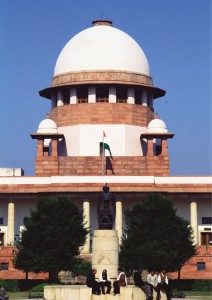In a landmark judgment targeting judicial corruption, Delhi High Court last month rejected an appeal by the Supreme Court, ruling that the office of the chief justice of India (CJI) was subject to the Right to Information (RTI) Act.
It was unusual for the Supreme Court to be a petitioner in a subordinate court. The Indian constitution is silent on this issue.
 Senior advocate Lalit Bhasin told India Business Law Journal that “the constitution [makers] did not envisage a situation where the Supreme Court could be a party”. But he added that “the Supreme Court, in its administrative capacity through the registrar, can challenge any order passed by any authority if it thinks that certain judgments would operate against the interest of the judiciary as a whole, or would try to bring down the reputation or the working of the Supreme Court”.
Senior advocate Lalit Bhasin told India Business Law Journal that “the constitution [makers] did not envisage a situation where the Supreme Court could be a party”. But he added that “the Supreme Court, in its administrative capacity through the registrar, can challenge any order passed by any authority if it thinks that certain judgments would operate against the interest of the judiciary as a whole, or would try to bring down the reputation or the working of the Supreme Court”.
You must be a
subscribersubscribersubscribersubscriber
to read this content, please
subscribesubscribesubscribesubscribe
today.
For group subscribers, please click here to access.
Interested in group subscription? Please contact us.





















